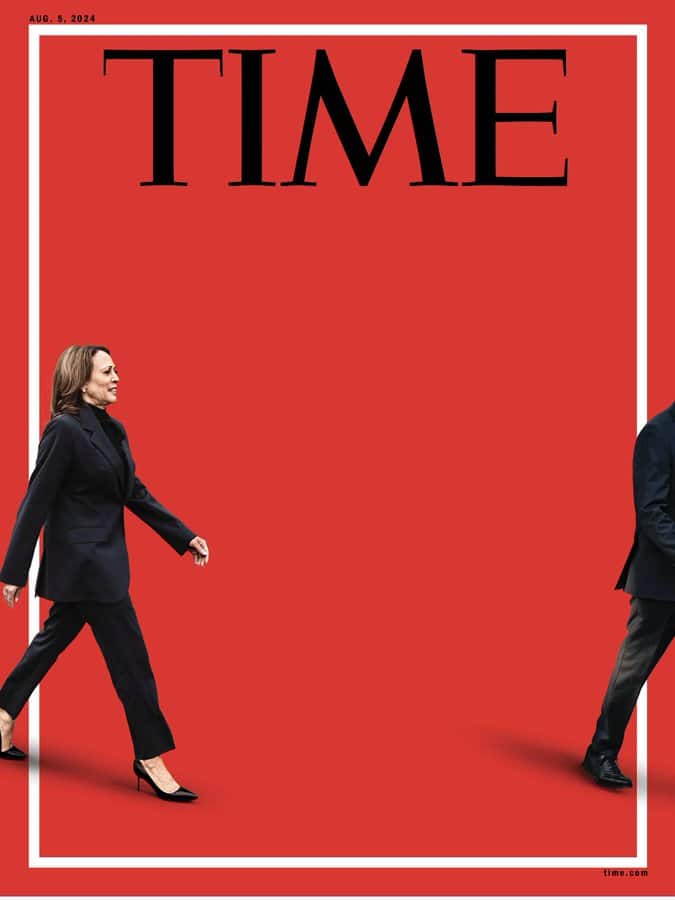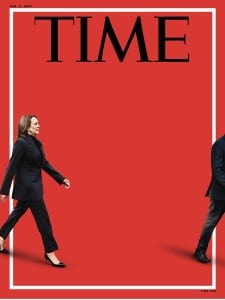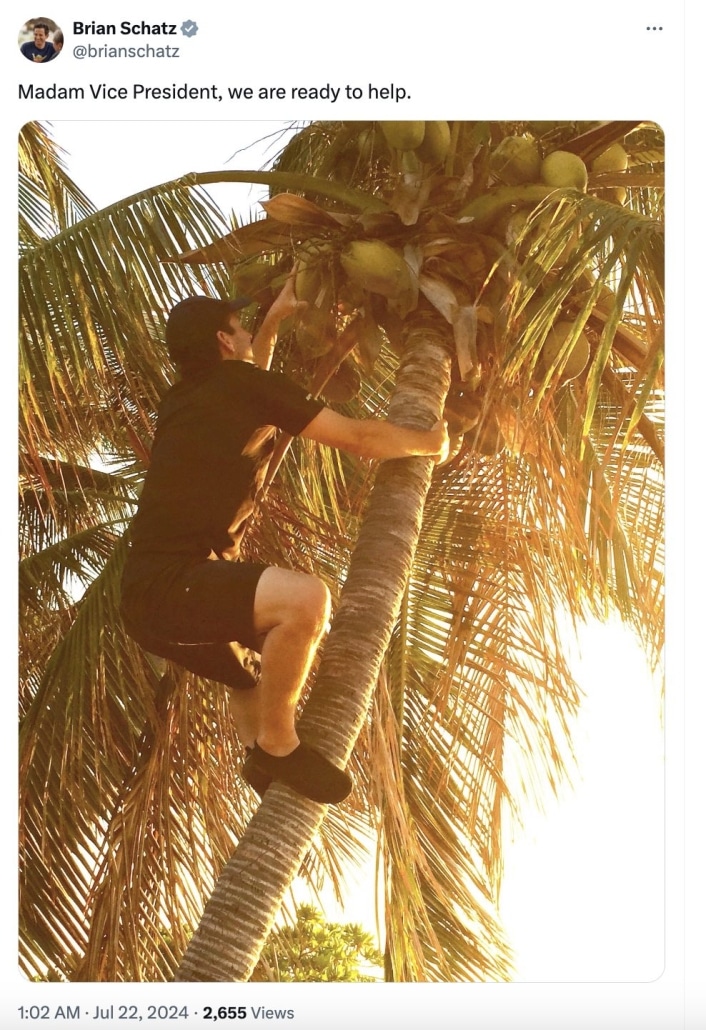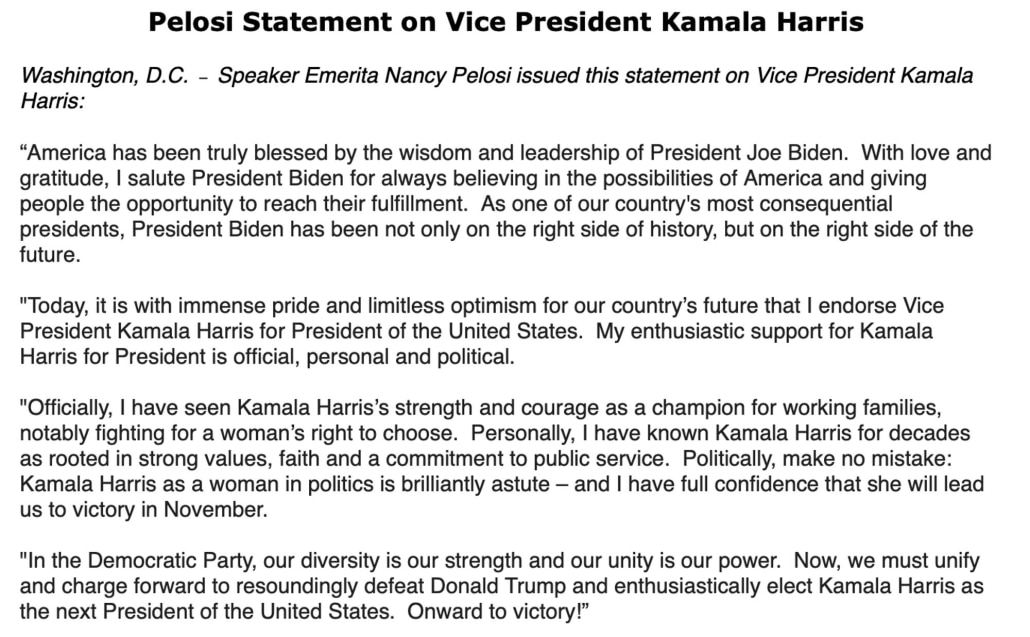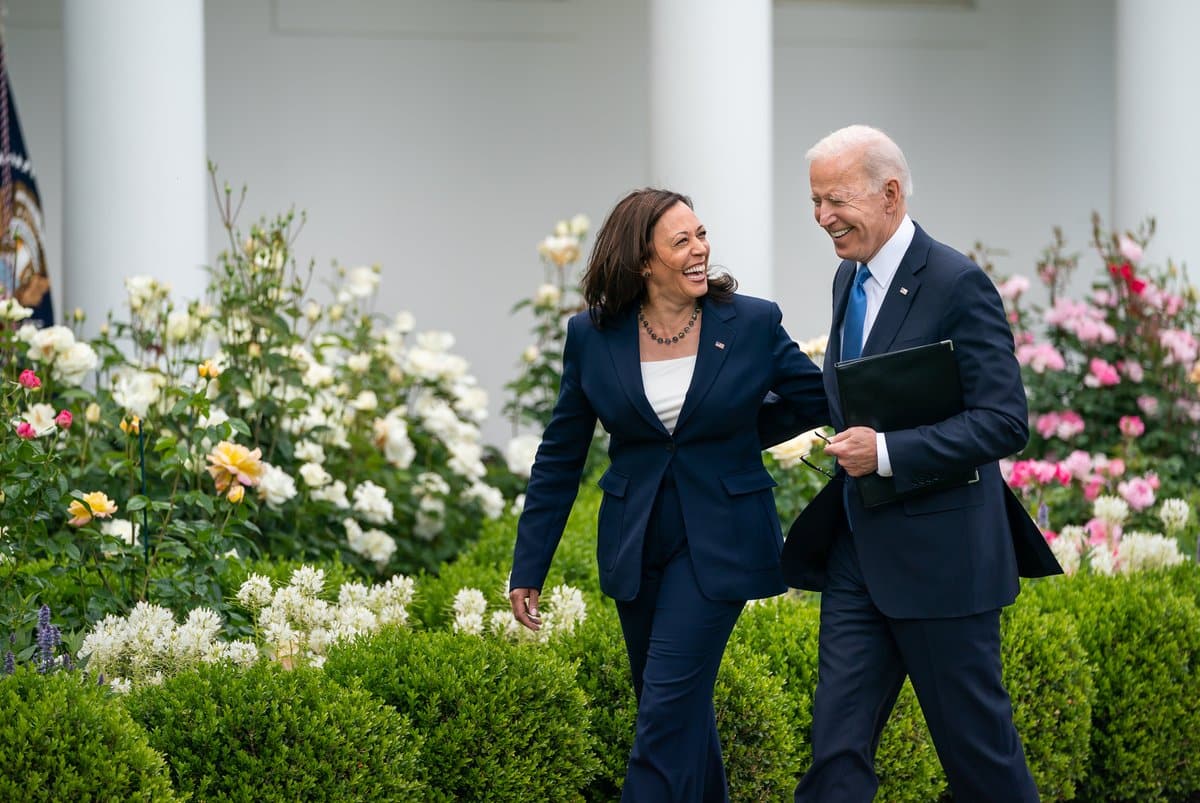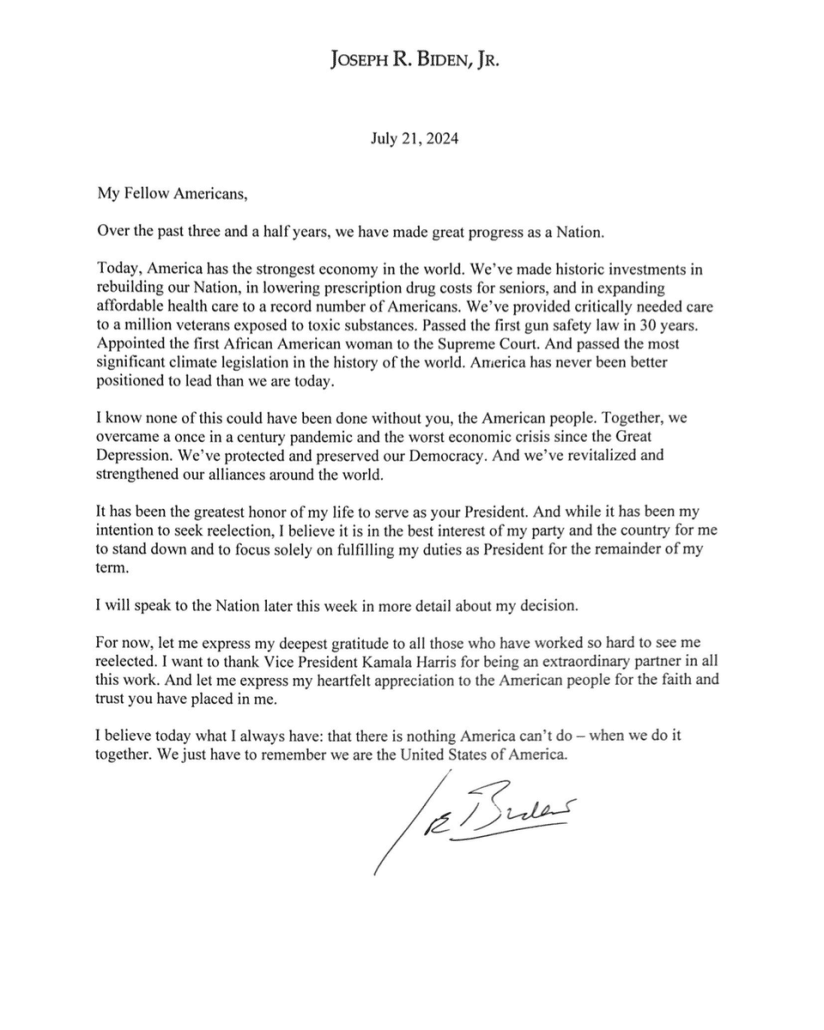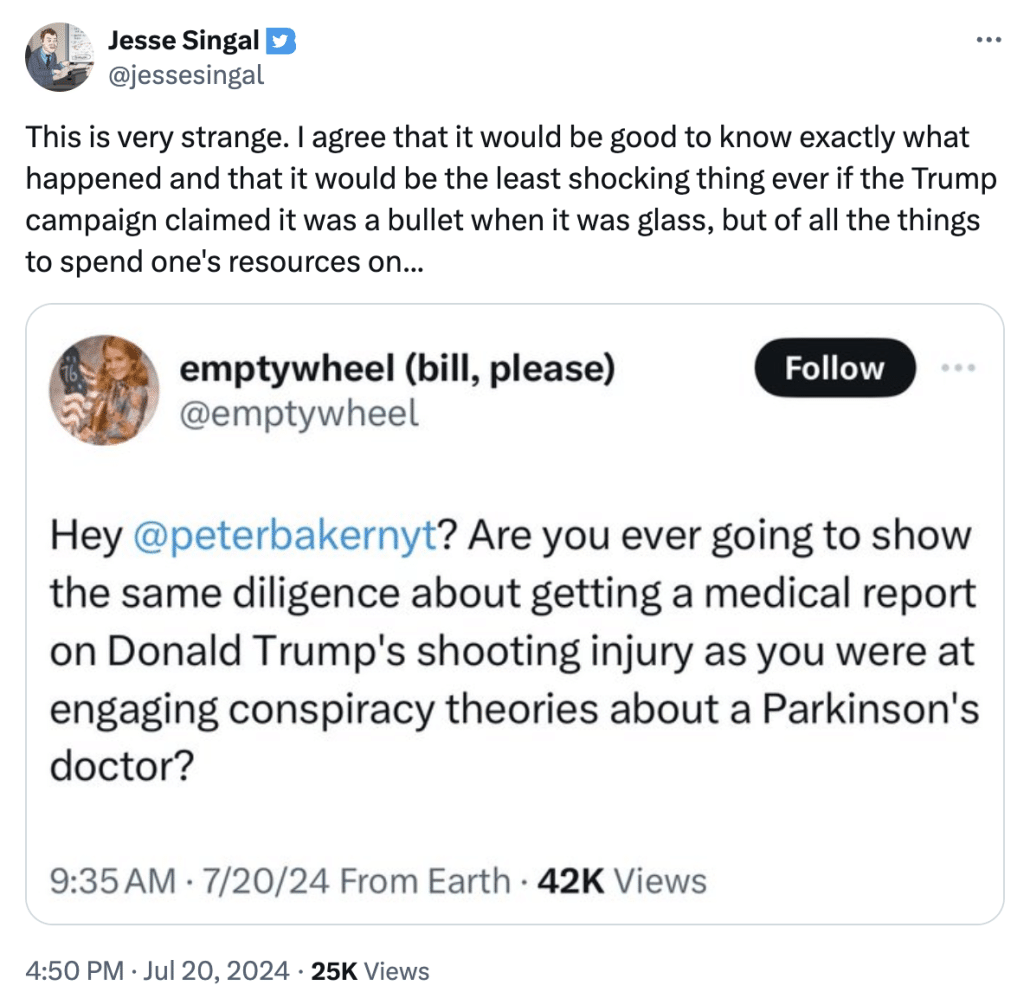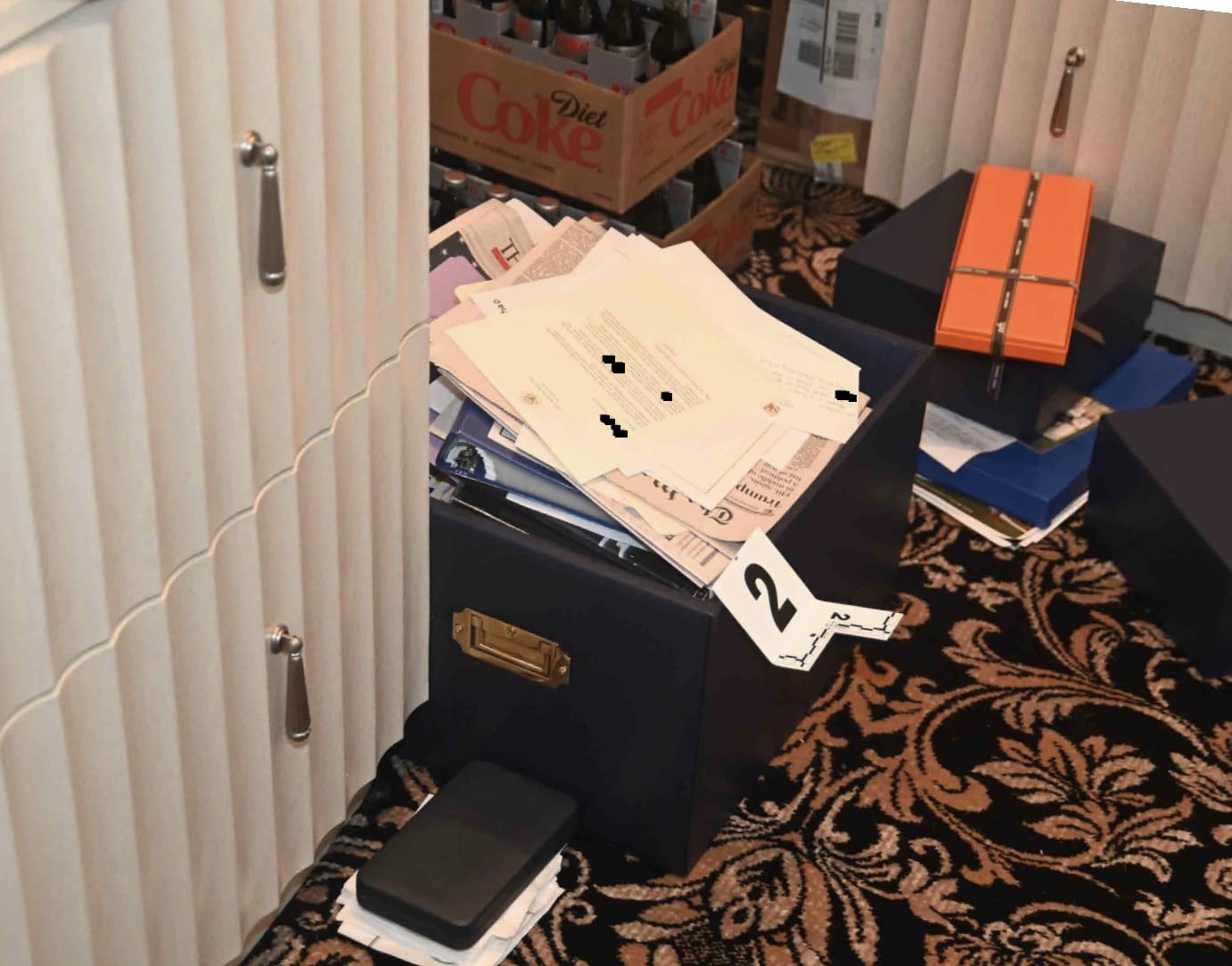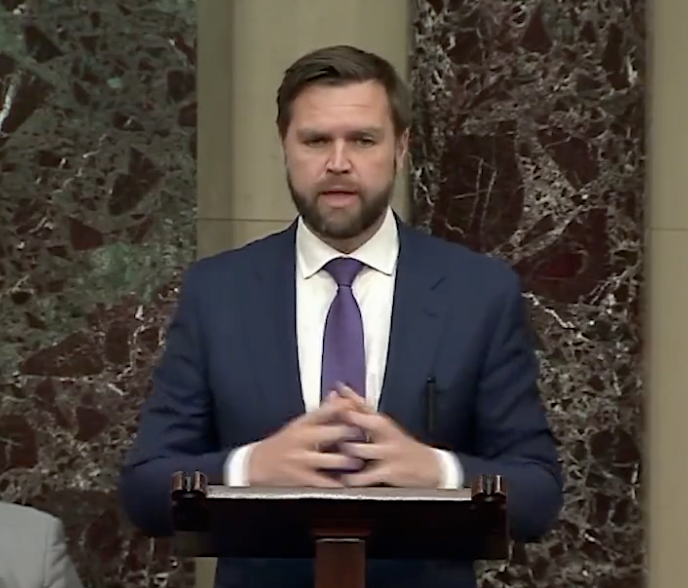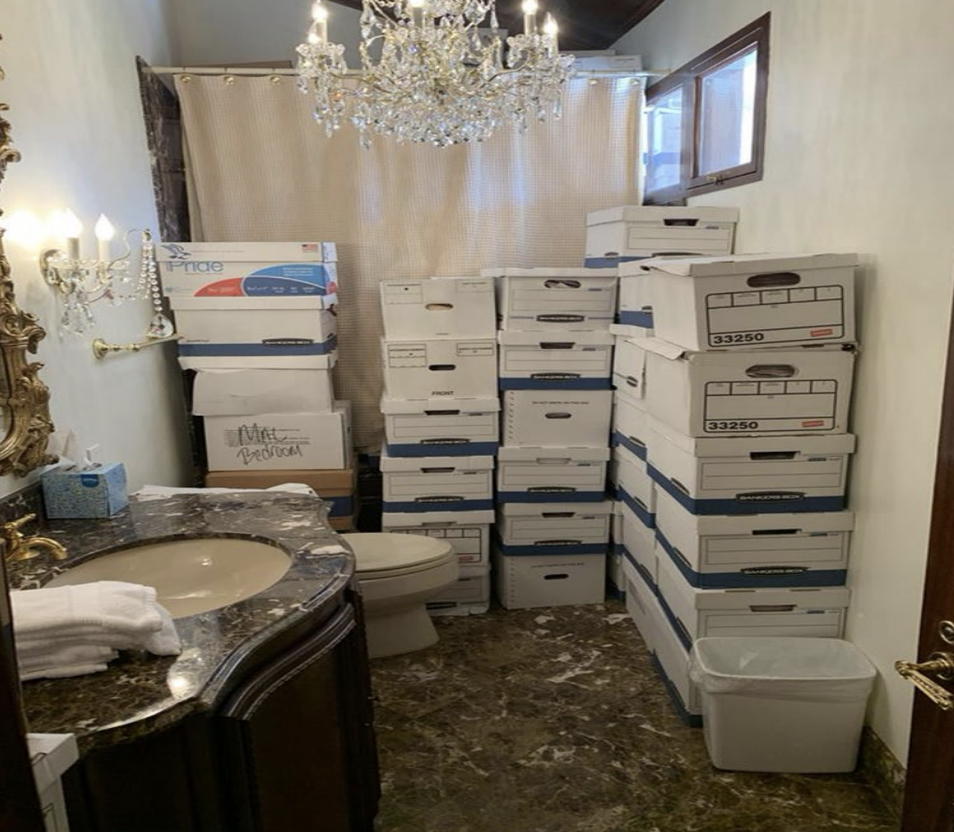A jury found Robert Menendez guilty on all charges yesterday, including those alleging he accepted payments from Egypt and Qatar (I didn’t follow the trial closely enough to figure out which country ultimately provided the gold). The verdict marks DOJ’s first successful conviction under 18 USC 219, basically, working for a foreign country while serving as a member of Congress.
Henry Cuellar faces the same charge.
While the RNC largely overshadowed the verdict, Chuck Schumer, Cory Booker, and Governor Phil Murphy have all called on Menendez to step down.
The reasons why he should resign seem obvious: You can’t continue to serve the people of New Jersey after a jury determined you were actually using your position of power to serve two wealthy foreign countries.
Is Trump a Saudi foreign agent?
And yet we are two days into Trump’s nomination party, and no one has asked — much less answered — whether Donald Trump is a business partner, paid foreign agent, or merely an employee of Saudi Arabia.
This is not a frivolous question. Since Trump left office, his family has received millions in four known deals from the Saudis:
- A deal to host LIV golf tournaments. Forbes recently reported that Trump Organization made less than $800K for about half the tournaments it has hosted. But Trump’s role in the scheme has given credibility to an influence-peddling scheme that aims to supplant the PGA’s influence. When Vivek Ramaswamy learned that two consultants to his campaign were simultaneously working for LIV, he forced them to resign to avoid the worries of influence-peddling. Yet Trump has continued to host the Saudis at his properties.
- A $2 billion investment in Jared Kushner’s private equity firm, in spite of the fact that analysts raised many concerns about the investment, including that he was charging too much and had no experience.
- A deal to brand a property in Oman slated to open in 2028, which has already brought Trump Organization $5 million. The government of Oman is a key partner in the deal, signed with a huge Saudi construction firm.
- A newly-announced deal with the same construction firm involved in the Oman deal, this time to brand a Trump Tower in Jeddah.
These Saudi deals come on top of Trump’s testimony that Turnberry golf course and his Bedford property couldn’t be overvalued because some Saudi would be willing to overpay for them.
But I believe I could sell that LIV Golf for a fortune, Saudi Arabia. I believe I could sell that to a lot of people for numbers that would be astronomical because it is like — very much like owning a great painting.
[snip]
I just felt when I saw that, I thought it was high. But I could see it — as a whole, I could see it if this were s0ld to one buyer from Saudi Arabia — I believe it’s the best house in the State of New York.
And while Eric Trump, not his dad, is running the company, Eric also has a role in the campaign and his spouse Lara has taken over the entire GOP.
Trump never fulfilled the promises to distance himself from his companies in the first term. A very partial review of Trump Organization financial records show the company received over $600K from the Saudis during his first term. As far as I’m aware, no one has even asked this time around.
Which means as things stand, Trump would be the sole beneficiary of payments from key Saudi investors if he became President again. Trump would be, at the very least, the beneficiary of a business deal with the Saudis, as president.
Admittedly, under the Supreme Court’s latest ruling on gratuities, it might be legal for Trump to get a bunch of swank branding deals as appreciation for launder Saudi Arabia’s reputation (one of the things for which Menendez was just convicted).
But that doesn’t mean it should be ignored, politically. It doesn’t mean American voters shouldn’t know these details. It doesn’t mean journalists (besides NYT’s Eric Lipton, whose most recent story on this was buried on page A7) shouldn’t demand answers.
What deals has Trump made with Putin and/or Orbán?
At some point at the RNC, Don Jr claimed that his Daddy would get poor coverage from real journalists because “they lied about Russia Russia Russia.”
Only, they didn’t.
In guilty pleas, Trump’s people confessed that they were the ones lying. George Papadopoulos lied to hide when he learned of the Russian hack-and-leak operation. Mike Flynn lied to hide his efforts to undermine Barack Obama’s foreign policy with Russia. Micahel Cohen lied to hide his contact with the Kremlin during the campaign in pursuit of the kind of Trump Tower deal Trump has since inked with the Saudis.
Don Jr was spared charges, in part, because he’s too dumb to be expected to know he shouldn’t accept campaign dirt from Russian nationals.
Robert Mueller found that Trump’s campaign manager briefed someone Treasury has since labeled a Russian spy, Konstantin Kilimnik, on his plan to win the Rust Belt, even while discussing a deal to carve up Ukraine and get tens of millions in benefits. Kilimnik passed on polling data and the campaign strategy to Russian spies. Amy Berman Jackson ruled that Paul Manafort lied to hide that.
At the time the FBI obtained Roger Stone’s cell site location in August 2018, they had reason to believe he had gotten advance notice of both the dcleaks and the Guccifer 2.0 releases. Stone had multiple contacts with Trump about the releases and prosecutors hoped to obtain a notebook where Stone documented all of those conversations. A jury found that Stone lied to hide whence he learned all this.
Trump pardoned all but Cohen and Jr for the lies they told to hide what really happened with Russia. And we still don’t know why the clemency for Roger Stone Trump stashed in his desk drawer had a Secret document on Macron associated with it.
And Trump has only gotten more shameless since. In 2019, during his impeachment for extorting Volodymyr Zelensky to investigate Joe Biden and his kid, Trump was warned that among the Ukrainians from whom Rudy Giuliani was soliciting dirt on the Bidens was at least one Russian agent, Andrii Derkach.
Trump did nothing to stop Rudy from sidling up to a Russian agent. And when Rudy came back, Bill Barr set up a side channel to ingest that dirt — a side channel the resulted in an FBI informant with self-professed ties to Russian spies attempting to frame Joe Biden for bribery, an attempt to frame Biden that likely goes a long way to explain why the plea deal against Hunter Biden collapsed.
Once upon a time, it was a big deal that Trump refused to let an activist make the RNC platform’s defense of Ukraine more hawkish.
Now, however, Trump no longer hides that he’s willing to let Putin dismember Ukraine. He welcomed Viktor Orbán’s pitch of a plan to do just that — but there has been no readout from Trump’s side of what happened. Orbán, however, has told other EU nations that Trump will moved for “peace” immediately after being elected — a replay of what Flynn lied to cover up in 2017 — largely by withdrawing US support for Ukraine.
In the past, Trump has gone even further than this, suggesting he’ll do nothing as Putin invades NATO states.
Meanwhile, JD Vance is, if anything, even more pro-Russian than Trump, as are some of the Silicon Valley oligarchs who now back Trump’s campaign since the Vance pick.
Trump’s plan of capitulation to Russia will go a long way to ending the Western rules-based order, the greatest wish of Putin and Xi Jinpeng.
And thus far we know just one of the things that Russia seems to be doing to help Trump’s campaign: detaining WSJ reporter Evan Gershkovich until Trump gets elected, just as Iran held onto hostages to help Reagan get elected. Avril Haines recently made clear Russia is planning on helping in other ways as well.
That’s how “Russia Russia Russia” has worked. It’s a shameless lie that Mueller found nothing, a lie built off years of propaganda. Indeed, Trump’s willing acceptance — or, in Rudy’s case, outright solicitation — of Russia’s help to get elected has only gotten more brazen. Yet rather than call Don Jr on his “Russia Russia Russia” lie, reporters simply let the pressing question of whether Trump will end the alliance of democracies in a second term go unasked.
What happened to the missing classified documents?
Amid the focus on Aileen Cannon’s stall then dismissal of Trump’s stolen documents charges, something has been missed: There appear to be documents missing. Here’s what we know:
- According to the indictment that Judge Cannon just threw out, after Trump tricked Evan Corcoran into searching only about half the boxes containing stolen documents, he flew to Bedminster with “several” of the boxes he had excluded from the search.
- In July 2022, Trump and Walt Nauta snuck back to Mar-a-Lago from Bedminster — to check on the boxes, one witness told Jack Smith.
- When the FBI searched Mar-a-Lago on August 8, 2022, they failed to search a closet in his bedroom to which he had added a new lock.
- Several searches overseen by Tim Parlatore found no new documents, though he did find a new classified document folder.
Given FBI’s failure to do a complete search adn Parlatore’s failure to find documents at Bedminster, the most likely way to learn what happened to them would be to get Walt Nauta to flip, something that, as I suggested here, his indictment might normally have done. But (correct, as it turned out) expectations that the prosecution would go away kept Nauta from cooperating.
And as a result, we have literally no idea how many documents Trump managed to withhold from the FBI’s search, or what he did with them.
The continued focus on Joe Biden’s three year seniority over Trump
Again, this kind of betrayal of America once mattered in Trump’s campaigns.
No longer.
It’s not happening because journalists are so cowardly they can be cowed with a mere “Russia Russia Russia” chant.
And it’s not happening because journalists have lost all sense of proportion — and for many of them, all sense of public good.
Journalists are making much of a confrontation between Jason Crow and Biden, related by Julia Ioffe, in which Biden insisted he had been great on foreign policy.
The campaign did not, however, dispute this next part, about Crow and his Bronze Star. In a video of the Zoom that I was able to view, you can hear Biden chastising Crow, who asked about the importance of national security to voters. “First of all, I think you’re dead wrong on national security,” the president says, the emotion at times garbling his words. “You saw what happened recently in terms of the meeting we had with NATO. I put NATO together. Name me a foreign leader who thinks I’m not the most effective leader in the world on foreign policy. Tell me! Tell me who the hell that is! Tell me who put NATO back together! Tell me who enlarged NATO, tell me who did the Pacific basin! Tell me who did something that you’ve never done with your Bronze Star like my son—and I’m proud of your leadership, but guess what, what’s happening, we’ve got Korea and Japan working together, I put Aukus together, anyway! … Things are in chaos, and I’m bringing some order to it. And again, find me a world leader who’s an ally of ours who doesn’t think I’m the most respected person they’ve ever—”
“It’s not breaking through, Mr. President,” said Crow, “to our voters.”
“You oughta talk about it!” Biden shot back, listing his accomplishments yet again. “On national security, nobody has been a better president than I’ve been. Name me one. Name me one! So I don’t want to hear that crap!”
It’s another instance where Biden responds stubbornly when Democrats try to push the president to drop out of the race. And that’s why reporters are gleefully dunking on Biden’s comments.
But it’s also an instance where Biden is making a really good point: He has restored America’s alliances to what they were before Trump destroyed them.
And the press is only telling that story — and doesn’t even realize that they are only telling that story — as part of their singular obsession with Biden’s age.
It’s a confession, really, that they have abdicated any concern for the kind of accomplishments of which Biden is justifiably bragging (ignoring Gaza). They have been bullied out of covering any of Trump’s glaring betrayals of the country the leadership of which he wants to monetize.
Trump might literally be an agent of a foreign power — just like Robert Menendez has been adjudged — and this mob calling themselves journalists would exhibit the least interest, much less persistent concern. Journalists don’t even care that both of Trump’s most suspect foreign allegiances involve the exploitation of journalists for political gain, first Jamal Khashoggi and then Gershkovich. Journalists have ignored that recent history, even after he picked Vance, someone who formally asked Merrick Garland to criminally investigate Robert Kagan (a neocon whom Vance called left wing) for inciting insurrection because he discussed liberal states resisting Trump in a second term.
Trump might literally sell out the next journalist who opposes him to be chopped up by some foreign dictator. And yet the press corps seems not to give a rat’s ass.
Because Joe Biden is three years older than Donald Trump.

